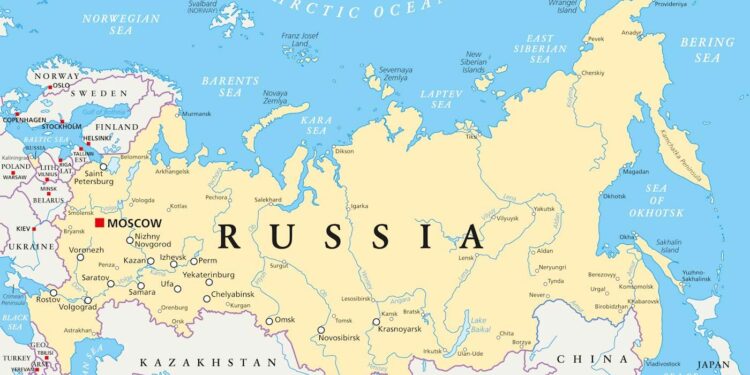Russia, Hungary, and Serbia have initiated high-level discussions focused on the construction of a new oil pipeline, according to reports from TVP World. The talks underscore a shared strategic interest among the three countries in enhancing energy connectivity and securing stable supplies amid shifting geopolitical dynamics. As Europe grapples with evolving energy demands and supply challenges, this potential infrastructure project could significantly impact regional energy markets and transit routes.
Russia Hungary and Serbia Explore Strategic Energy Collaboration to Enhance Regional Oil Supply
High-level energy officials from Russia, Hungary, and Serbia recently convened to discuss a landmark project aimed at constructing a new oil pipeline linking the three nations. This initiative is poised to significantly boost regional energy security by diversifying supply routes and reducing dependency on existing infrastructure. The proposed pipeline corridor would offer a direct transit option that enhances operational efficiency and strengthens bilateral ties within Eastern Europe. Officials emphasized the project’s potential to create long-term economic benefits, including job creation and enhanced energy resilience.
Key discussion points included:
- Pipeline capacity and technical specifications to meet growing demand efficiently
- Joint investments and financing models to ensure equitable cost-sharing
- Environmental safeguards to align with international standards
- Timelines for construction phases and operational milestones
A succinct overview of the preliminary framework discussed is captured in the table below:
| Aspect | Details |
|---|---|
| Pipeline Length | ~400 km |
| Annual Throughput | 8 million tonnes |
| Investment Share | Russia 50%, Hungary 30%, Serbia 20% |
| Projected Completion | 2028 |
| Environmental Measures | Advanced leak detection & habitat preservation |
Implications of the Proposed Pipeline on European Energy Security and Geopolitical Dynamics
The new oil pipeline initiative between Russia, Hungary, and Serbia signals a significant shift in the European energy landscape, challenging the current dependency frameworks dominated by Western energy routes. By enhancing direct supply chains from Russia to Central and Southeastern Europe, the pipeline promises to bolster energy security for Hungary and Serbia, reducing transit vulnerabilities that have previously exposed these nations to supply disruptions amid geopolitical tensions. This infrastructural development could also recalibrate alliances within the European Union, as countries diversify away from traditional energy corridors controlled by other regional powers.
Beyond energy considerations, the project carries substantial geopolitical weight. It positions Russia as a pivotal energy supplier capable of extending influence deep into European affairs, while simultaneously empowering Hungary and Serbia as crucial transit hubs. This realignment raises questions about the EU’s cohesion and the effectiveness of its collective energy policies. Key implications include:
- Strengthened Russia-Europe energy ties bypassing traditional blockade points
- Increased bargaining power for Hungary and Serbia within EU energy dialogues
- Potential shifts in EU sanctions and foreign policy due to changing dependencies
| Country | Projected Energy Benefit | Geopolitical Impact |
|---|---|---|
| Russia | Expanded market access | Enhanced influence in EU affairs |
| Hungary | Improved energy security | Greater regional leverage |
| Serbia | Economic boost from transit fees | Closer ties with Russia and Hungary |
Experts Recommend Strengthening Multilateral Partnerships to Ensure Sustainable Infrastructure Development
In light of the recent tripartite discussions between Russia, Hungary, and Serbia on constructing a new oil pipeline, experts emphasize that sustainable outcomes hinge on robust multilateral collaboration. The complexity and scale of such infrastructure projects demand a coordinated approach where technical expertise, financial investment, and environmental safeguards are collectively managed. Strengthening partnerships beyond bilateral agreements ensures that risks are mitigated, and long-term benefits are equitably shared among all stakeholders.
Key elements identified by specialists as essential for fostering these alliances include:
- Transparent governance frameworks to build trust and accountability
- Alignment of environmental standards to minimize ecological impact
- Integrated financing models combining public and private capital
- Regular stakeholder engagement for adaptive project management
| Aspect | Benefit in Multilateral Cooperation |
|---|---|
| Resource Sharing | Optimizes technical know-how and infrastructure |
| Risk Distribution | Reduces individual country vulnerability |
| Environmental Oversight | Ensures adherence to international standards |
| Economic Integration | Boosts regional trade and energy security |
To Conclude
As Russia, Hungary, and Serbia continue their discussions on constructing a new oil pipeline, the development signals a strategic shift in regional energy cooperation amid evolving geopolitical dynamics. The outcome of these talks will be closely monitored by international stakeholders, given the potential implications for energy security and economic ties in Eastern Europe. Further updates are expected as negotiations progress and plans take shape.
















